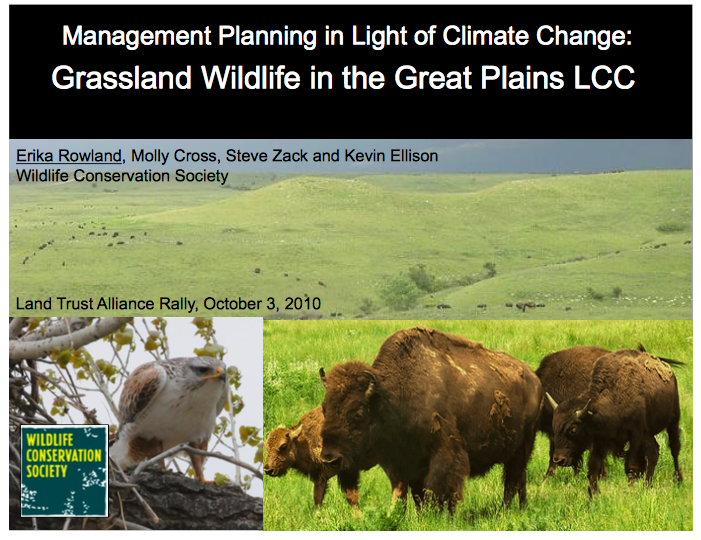Foundational Science Area: Assessing Climate Change Impacts to Wildlife and Habitats in the North Central U.S.

Posted by
CAKE TeamPublished
Abstract
Rates of climate and land use change vary across the Great Plains and Rocky Mountains as do the responses of ecosystems to these changes. Knowledge of locations of rapid land use, climate change and changes in ecosystem services such as water runoff and ecological productivity are important for vulnerability assessment and designing locally relevant adaptation strategies to cope with these changes.
This project assessed the loss of public, private, and tribal lands due to ongoing land use intensifications and fragmentation extents across the NC CSC domain. In addition, the project evaluated how the climate, ecosystem processes, and vegetation have shifted over the past half century and how they are projected to change in the coming century under various future scenarios. These analyses were carried out in Greater Wildland Ecosystems (GWEs) and Environmental Protection Agency level III ecoregions centered at public, tribal, and private lands. These areas of natural vegetation provide ecosystem services important to local people, and knowledge of patterns of climate and ecological change are important to resource managers.
The results of the project can be used by the NC CSC Adaptation team to work with local stakeholders to develop strategies for coping with and adapting to the ongoing land use change and projected changes in climate.
Objectives were as follows:
- Objective 1 analyzed the rates and patterns of fragmentation of natural cover types by human land use intensification after European settlements and recent past.
- Objective 2 summarized climate change impacts on projected water balance in EPA level III ecoregions across the domain by using the Multivariate Adaptive Constructed Analogs (MACA) products.
- Objective 3 was focused on developing and projecting habitat suitability models for 33 dominant tree and shrub species under IPCC climate scenarios.
- Objective 4 focused on assessing the climatic bias in the placement of public, private 3 and tribal lands of each GWE across the domain.
- For each Objective from 1 – 4, we evaluated vulnerability of GWEs, land allocation types, tree species, and forest communities related to Objective 5.
Citation
Arjun Adhikari, A. and Hansen. A.J. (2018). Foundational Science Area Activities: Assessing Climate Change Impacts to Wildlife and Habitats in the North Central U.S. Montana State University Bozeman, MT. North Central CASC.


